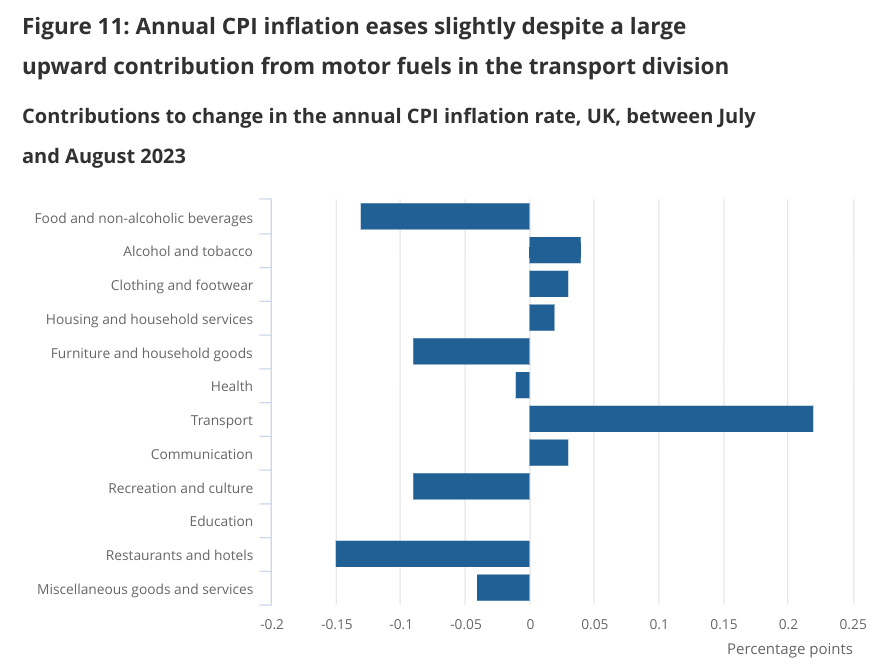Surprise fall in inflation leaves Bank of England rates decision on knife-edge

Inflation fell unexpectedly in August as falling food inflation helped offset rising energy costs, official data out today shows.
According to figures from the Office for National Statistics (ONS) the consumer price index (CPI) came in at 6.7 per cent in August, down marginally from 6.8 per cent in July and lower than the roughly seven per cent expected by most economists.
The largest contributors to the fall were food and overnight accommodation such as hotels. As expected, rising fuel prices was the largest upward contributor.
ONS Chief Economist Grant Fitzner said: “The rate of inflation eased slightly this month driven by falls in the often-erratic cost of overnight accommodation and air fares, as well as food prices rising by less than the same time last year.”

Core inflation – which strips out volatile components like energy and food – fell to 6.2 per cent in August from 6.9 per cent last month. This was a far faster fall than both the Bank and City analysts had expected.
“Core inflation has slowed this month by more than the headline rate, driven by lower services prices,” Fitzner said.
Service inflation has been identified as a key measure to watch by rate-setters at the Bank of England, as it indicates inflationary persistence. It fell to 6.8 per cent from 7.4 per cent in July.
Both the Bank of England and Chancellor Jeremy Hunt had warned that inflation might tick up in August as a result of rising fuel prices.
The surprise fall may increase the chance that rates are left on hold when the Bank of England meets tomorrow to set interest rates. Markets had been almost certain that rates would be left on hold.
The news will also be a relief to the government, who have set themselves the target of halving inflation by the end of the year.
Hunt said “today’s news shows the plan to deal with inflation is working – plain and simple.”
“But it is still too high which is why it is all the more important to stick to our plan to halve it so we can ease the pressure on families and businesses,” he continued.